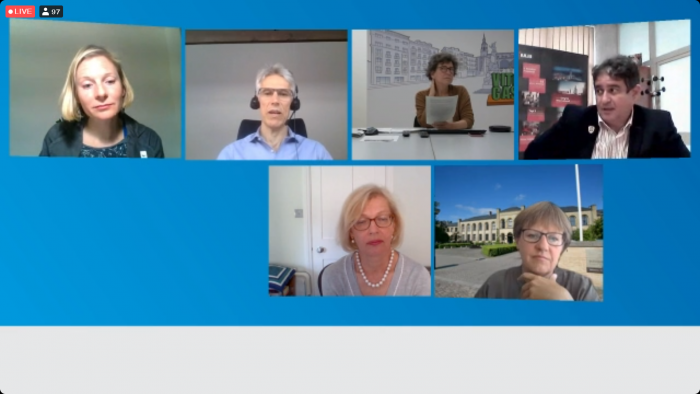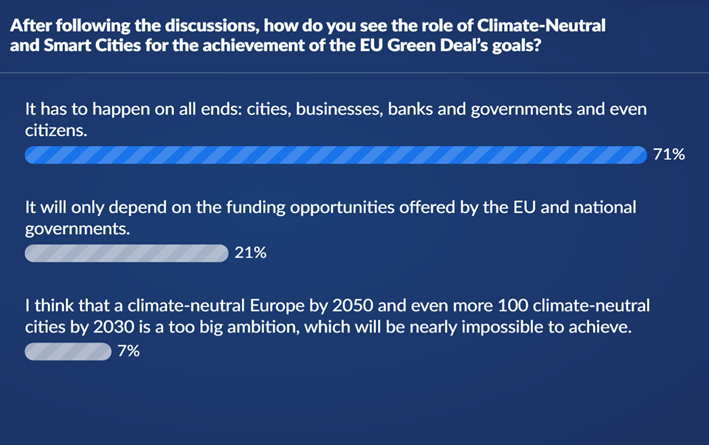
This interactive opening plenary took a closer look at the environment policy-related lead theme of the EU Green Week: zero pollution – and how Smart Cities and Communities in Europe can help achieve it. Most essentially regarding the ambition of 100 climate-neutral and smart cities by 2030.
Visit this link to watch the recording.
“Smart Cities are really well placed to create ecosystems connecting digital and green solutions”, said Eero Ailio from DG Energy, with reference to the ambitions of the EU to reach zero pollution also through the work of 100 climate neutral and smart cities.
“In terms of concrete goals one of the key factors will be the development of our Sustainable Energy and Climate Action Plan - our SECAP,” Ana Oregi, Deputy Mayor of Vitoria-Gasteiz said and continued later: “We estimate that the needed investment to achieve this will be 750 millions and most of this in the residential sector.”
“Everything we are doing in this Municipality is for the people and with the people”, said Mayor of Alba Lulia, Gabriel Pleșa, emphasising the importance of smart city work to be adapted to city-culture. He highlighted the rich cultural history of Alba Lulia as playing a role for their Smart City efforts. He also mentioned the work the city is doing on mobility and with Smart Lighting.
“I really see now that we have many different pieces of the puzzle put in place by the European Commission”, Claire Roumet, Director of Energy Cities, said discussing how efforts on Climate Neutrality, Zero Pollution, Circularity, and the Smart Cities work means cities are at a point where they are ready to deliver on their and the EU’s ambitions - provided the support is there.
“Our flag-ship Green Cities programme is about planning and ensuring cities can deliver green solutions to citizens. It’s a 2 billion Euro programme,” Susan Goeransson, Director, Head of Infrastructure Europe, Sustainable Infrastructure Group, European Bank for Reconstruction and Development (EBRD) said and added that private funding is ready to support projects, but public grants are useful in the beginning stages of a city’s smart city work. Learn more about the EBRD Green Cities programme here.
“Achieving the 100 [climate neutral] cities is not going to be easy. It’s about implementation, financing, regulation and about innovation and research in order to actually achieve this goal” said Katrine Krogh Andersen from the Mission Board of Climate Neutral and Smart Cities. She emphasized how one issue is not enough to focus on, and the solution has to be “systemic” in terms of governance and taking a holistic approach including collaboration between different stakeholders.
In the session, the audience were also asked for their view on how Smart Cities can support the European Green Deal.

